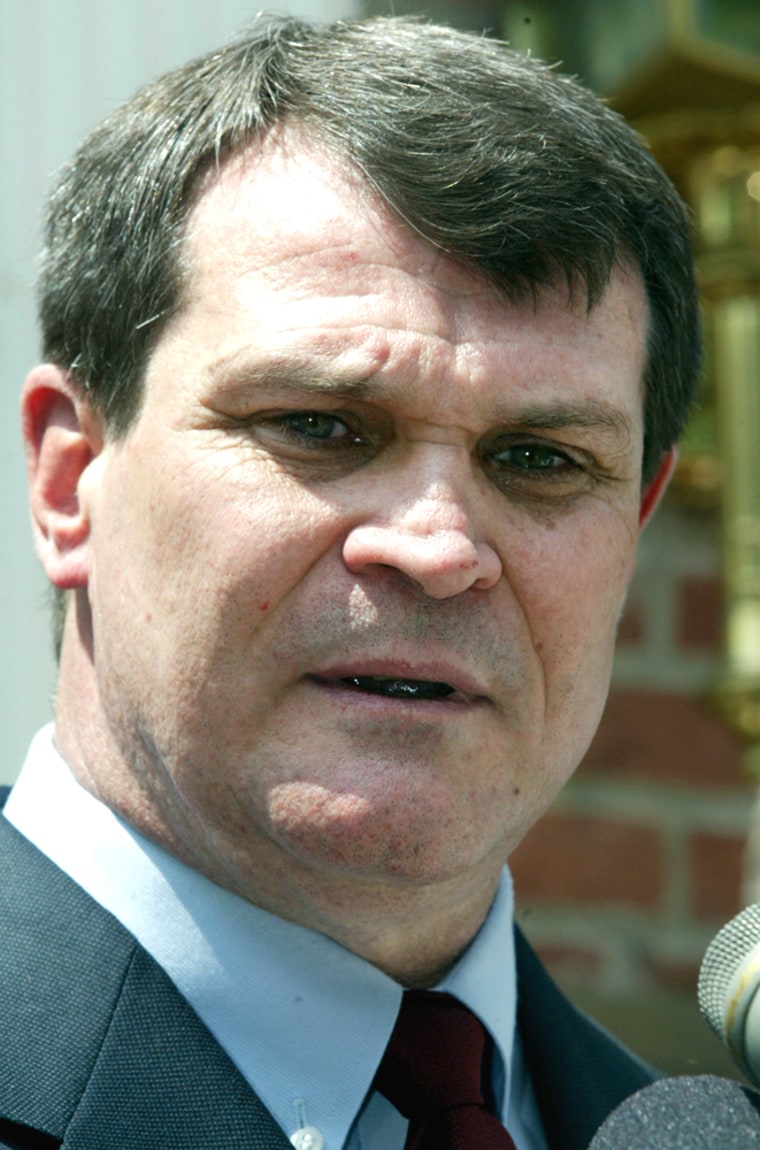A federal appeals court on Tuesday allowed a former Army scientist to proceed with a libel lawsuit against The New York Times that claims one of the paper’s columnists unfairly linked him to the 2001 anthrax killings.
Steven Hatfill sued the Times for a series of columns written in 2002 by Nicholas Kristof that faulted the FBI for failing to thoroughly investigate Hatfill for anthrax mailings that left five people dead.
The initial columns identified Hatfill only as “Mr. Z,” but subsequent columns named him after Hatfill stepped forward to deny any role in the killings. Federal authorities labeled Hatfill “a person of interest” in their investigation.
In a 6-6 decision, with one judge not participating, the 4th U.S. Circuit Court of Appeals failed to produce a majority of judges needed to grant a rehearing and affirmed an earlier decision to reinstate the case.
Hatfill, a physician and bioterrorism expert, worked in the late 1990s at the Army’s infectious disease laboratory at Fort Detrick, Md.
Were columns defamatory?
In July, a three-judge panel of the court overturned a federal judge’s ruling to toss out the case, saying that Kristof’s columns, taken as a whole, might be considered defamatory. The Times had asked the court to reconsider.
The case will go to the back to federal court in Alexandria, unless the Times files a motion asking the U.S. Supreme Court to hear the case.
Judge J. Harvie Wilkinson III, wrote for the dissenting jurists: “The panel’s decision in this case will restrict speech on a matter of vital public concern. The columns at issue urged government action on a question of grave national import and life-or-death consequences.”
Wilkinson, joined by Judges M. Blane Michael and Robert B. King, added that when viewed as a whole, the columns “do not pin guilt” on the plaintiff but rather urge the investigation of an “undeniable public threat.”
The dissenting judges also wrote that they believed the Times was only doing its job, emphasizing the public’s right to know as more than a “matter of voyeurism, titillation, or idle curiosity.”
“The bioterrorism presaged by these anthrax mailings was no small matter, and it may one day pose a threat on a very large scale.”
Times disappointed
David McCraw, counsel for the Times, said the paper was disappointed the court declined to rehear the case and noted that the dissenting justices addressed important issues relating to free speech and defamation.
Journalists “shouldn’t have to worry about where the line is going to be drawn,” he said. “If those lines are drawn too tightly, there won’t be adequate public commentary.”
Hatfill’s attorney, Tom Connolly, said his client was pleased with the ruling. “The press is entitled to report on important issues,” Connolly said. “But it has the obligation to get it right.”
Last month, a federal judge dismissed two claims in Hatfill’s lawsuit against the Justice Department but left open the possibility that he could hold officials accountable for comments made about him during the anthrax investigation.
Hatfill sued the Justice Department, the FBI, then-Attorney General John D. Ashcroft and other officials in 2003, claiming that his civil rights were violated when he was labeled a “person of interest” in the anthrax investigation.
